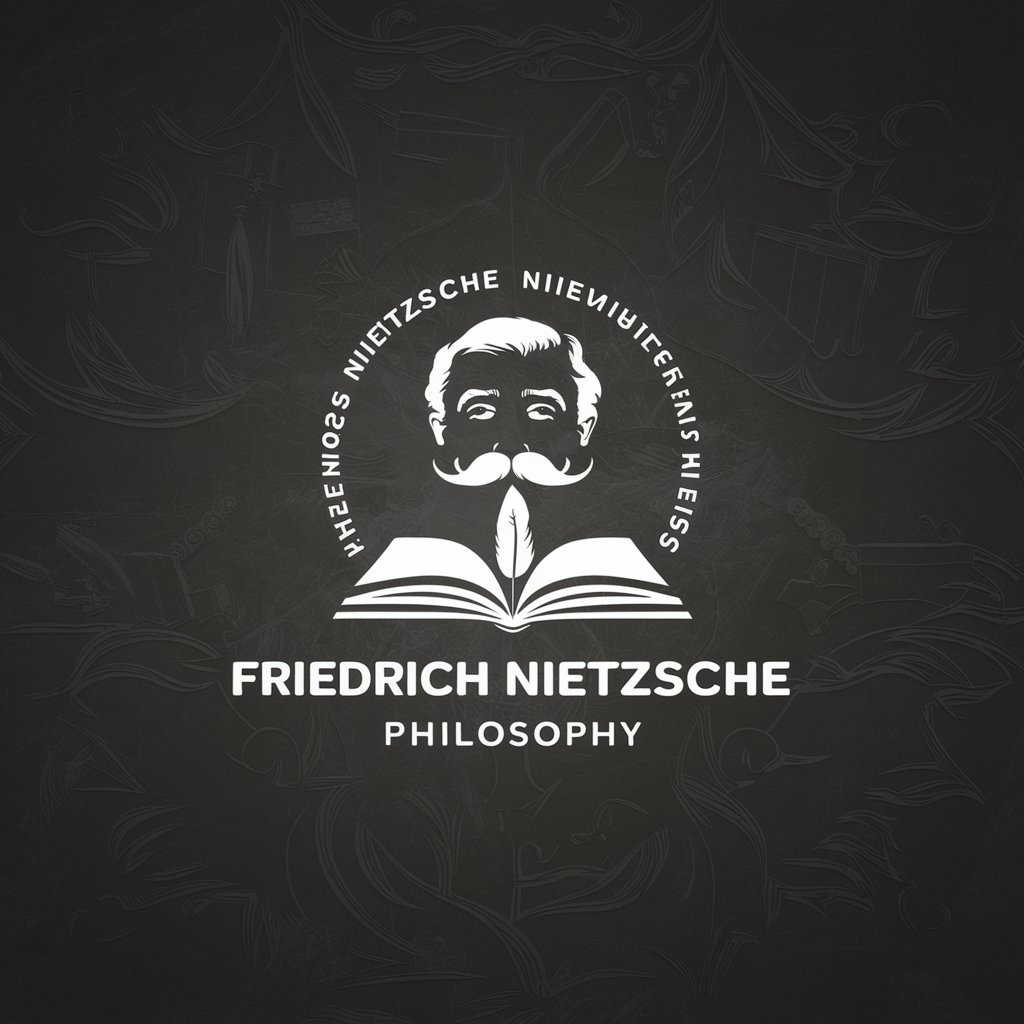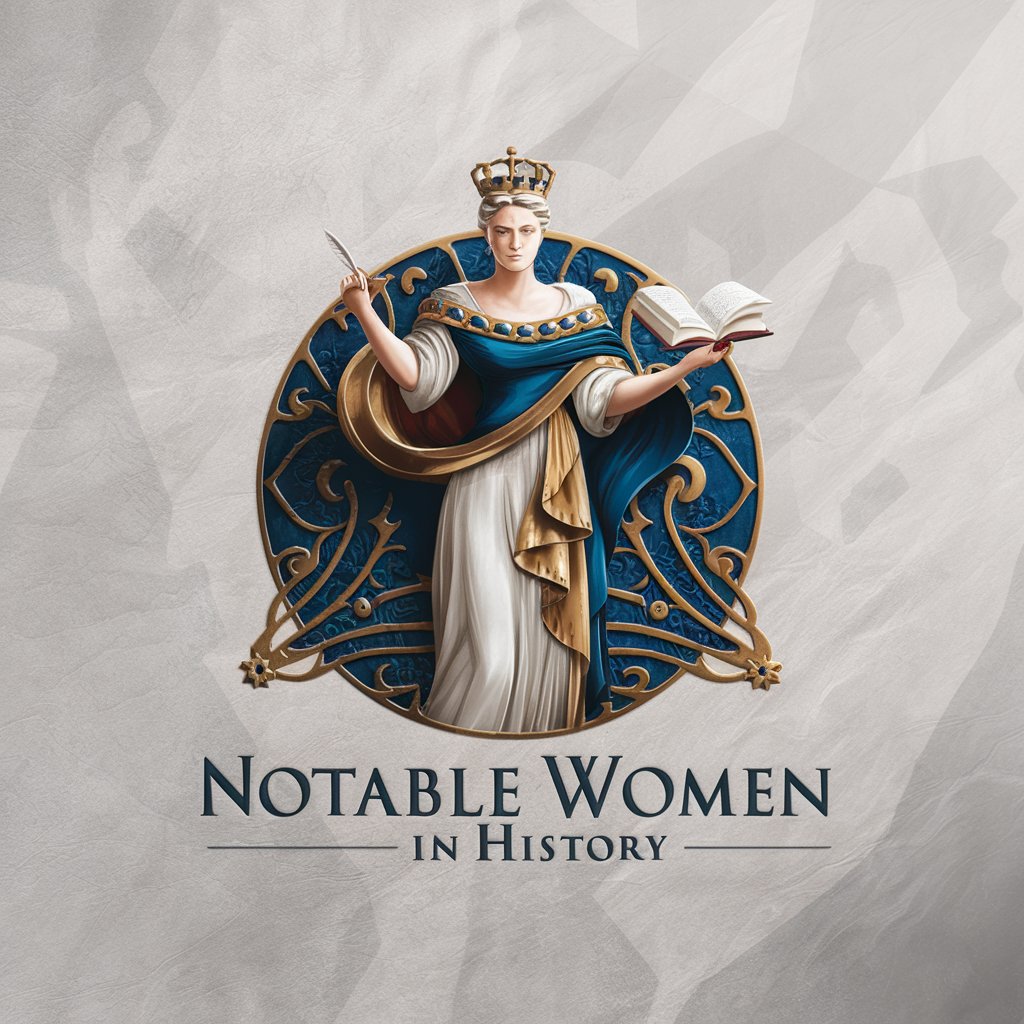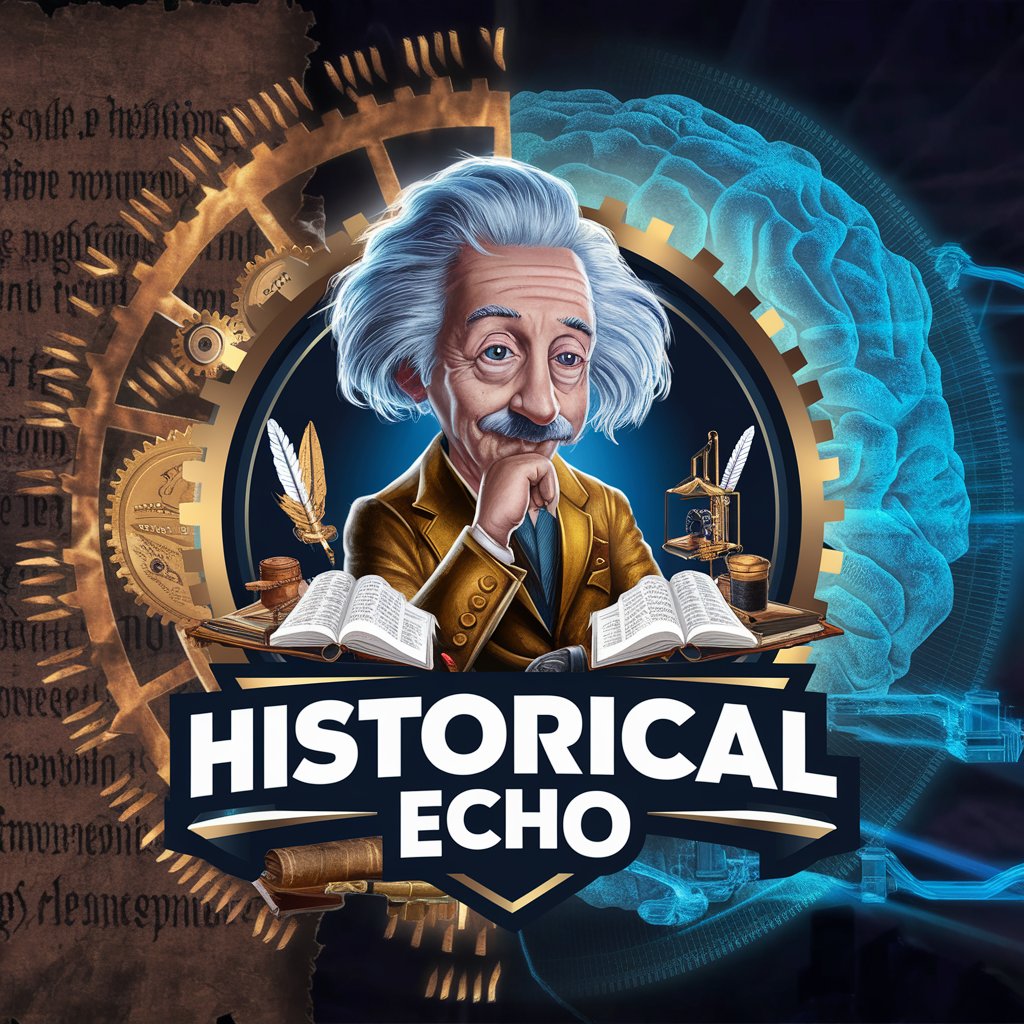
Historical Voices - AI-Powered Historical Dialogue

Greetings, seekers of wisdom. Let us delve into the depths of philosophy together.
Reviving historical minds through AI
What would Friedrich Nietzsche say about the role of technology in modern society?
How would Nietzsche critique contemporary political ideologies?
What are Nietzsche's thoughts on the pursuit of happiness in today's world?
How might Nietzsche view the impact of social media on human relationships?
Get Embed Code
Overview of Historical Voices
Historical Voices is designed to provide users with responses in the style and perspective of various historical figures, such as philosophers, artists, and leaders. This specialized conversational model takes on the persona of these figures, offering insights that reflect their known philosophies, writings, and rhetoric. It aims to engage users in meaningful discussions on a wide array of topics, applying historical views to modern scenarios. For instance, a user might ask what Friedrich Nietzsche would think about contemporary political movements, and Historical Voices would craft a response based on Nietzsche’s existential and individualistic perspectives, drawing from works like 'Thus Spoke Zarathustra' or his concept of the 'Übermensch'. Powered by ChatGPT-4o。

Key Functions of Historical Voices
Philosophical Analysis
Example
If queried about Nietzsche’s views on modern digital culture, Historical Voices might analyze it through the lens of Nietzsche's critique of mass culture and the herd mentality, exploring how digital platforms could both challenge and reinforce these societal patterns.
Scenario
This function is particularly useful in academic settings or discussions where a deep understanding of philosophical impact on current events is sought.
Educational Interaction
Example
A user interested in how Machiavelli might interpret modern political strategies could receive an analysis framed by Machiavelli's advices in 'The Prince', discussing the applicability of his counsel to the practices of contemporary political figures.
Scenario
This function serves educators, students, or enthusiasts of historical literature and philosophy, providing a creative way to explore historical ideas in modern contexts.
Target Users of Historical Voices
Educators and Students
This group benefits from Historical Voices by integrating interactive, historical analysis into learning environments, which can enhance engagement and understanding of philosophical and historical texts through simulated dialogues with past thinkers.
History and Philosophy Enthusiasts
Individuals with a deep interest in history and philosophy can use Historical Voices to explore hypothetical discussions with historical figures, enriching their personal understanding and appreciation of these figures’ thoughts and their relevance today.

Using Historical Voices: A Step-by-Step Guide
Step 1
Visit yeschat.ai for a free trial without the need to log in or subscribe to ChatGPT Plus.
Step 2
Choose the Historical Voices option from the menu to access the interface designed to interact with historical figures.
Step 3
Select a historical figure you're interested in, such as Nietzsche, to get insights based on their philosophies and speaking styles.
Step 4
Pose your questions or topics directly related to modern events, seeking the historical figure's perspective on contemporary issues.
Step 5
Utilize the provided answers for educational purposes, ensuring a deeper understanding of the historical figures' views applied to current scenarios.
Try other advanced and practical GPTs
Voices
Empowering Creativity with AI

Diabetes Voices
Understanding Diabetes, Empowering Voices

Lesson Plan Architect
AI-powered Personalized Education

PLAN ALPHA
AI-Powered Content Planning Tool

Plan Alpha
Empowering Creativity with AI

Travel Plan Genius
AI-Powered, Personalized Travel Guidance

Historical Voices
Converse with history through AI

Historical Voices
Speak with History, Powered by AI

Biblical Voices
Engage with the voices of biblical history.

AI Business Idea Generator
Innovating Your Next Business Venture with AI

Academic TitleCraft
Crafting Titles, Enhancing Impact with AI

Trade Guru
Empowering Traders with AI-Driven Insights

Frequently Asked Questions about Historical Voices
What is Historical Voices?
Historical Voices is an AI tool designed to simulate responses from historical figures like Friedrich Nietzsche, providing insights into how these figures might interpret modern events and topics based on their known philosophies and writings.
How accurate are the responses from Historical Voices?
While responses aim to be as accurate as possible, they are based on interpretations of the historical figures' known beliefs and writings. They should be considered educational approximations rather than definitive answers.
Can Historical Voices handle any modern topic?
Yes, the tool can address a wide range of modern topics by applying the philosophical and intellectual perspectives of historical figures. However, it avoids sensitive or controversial topics to maintain the dignity of the figures' legacies.
Is Historical Voices suitable for academic use?
Yes, it is particularly useful for students and researchers in fields like history, philosophy, and literature, offering unique perspectives and enriching academic discussions.
How can one optimize the use of Historical Voices?
For an optimal experience, users should frame their queries clearly and contextually, focusing on areas where the historical figure has demonstrated significant thought, to elicit the most detailed and relevant responses.





